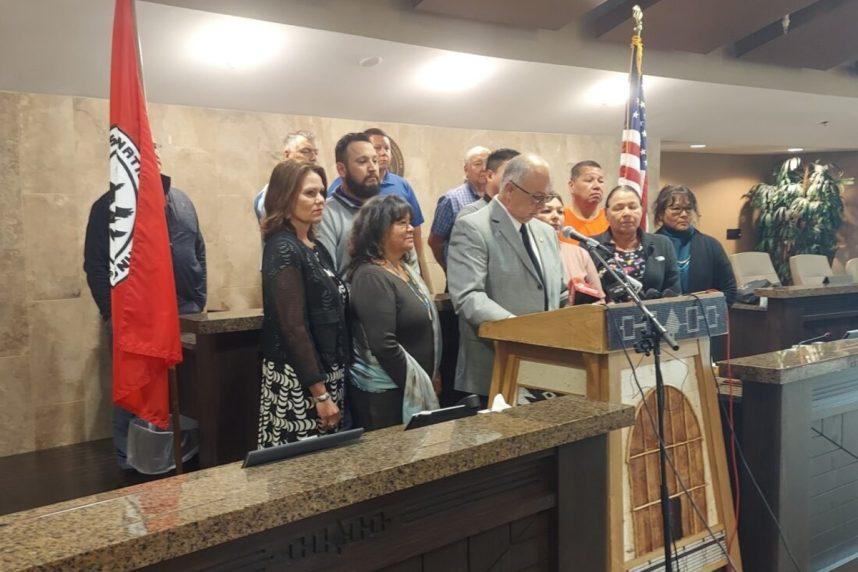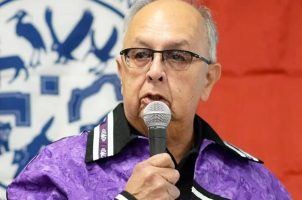Seneca Nation, New York Agree to New 20-Year Gaming Compact
Posted on: June 8, 2023, 09:00h.
Last updated on: June 8, 2023, 12:02h.
The Seneca Nation in upstate New York has reached an agreement in principle for a new 20-year, Class III gaming compact that will allow the tribe to continue operating its three casino resorts.

The federally recognized tribe’s 2002 gaming compact with the State of New York is set to expire in December. The current compact requires the tribe to direct 25% of the gross revenue generated by its casino slot machines to the state. The tribe fully retains its table game income.
The Seneca Nation owns and operates Seneca Niagara Resort & Casino, Seneca Buffalo Creek Casino, and Seneca Allegany Resort & Casino. The tribe’s compact with the state allows the Native Americans to maintain the exclusive rights to operate casinos with slot machines and table games west of State Route 14. The state highway borders the western edge of Seneca Lake, the largest of the 11 Finger Lakes.
We celebrate the agreement in principle for what it means for our shared future,” said Seneca Nation President Ricket Armstrong Sr.
A spokesperson for New York Gov. Kathy Hochul’s (D) office said the state is “pleased to have reached an agreement in principle on a fair compact … that will serve the interests of both parties and benefit Western New York communities.”
Gov. Hochul Recusal
The news of the Seneca Nation and New York striking a new gaming compact came as a surprise to many, as tensions between the two sides have been heightened in recent years. The tribe suspended sharing its slot win back in 2017 after it contended in court that its 2002 compact ran for only 15 years. It noted no renewal language was included in the original agreement.
The Seneca Nation suspended its slot payments and instead put those funds in an escrow account as the litigation played out. The tribe also voiced allegations that New York failed to uphold its end of the bargain by greatly expanding gaming in 2013. That was done through a bill that resulted in the opening of four upstate commercial casinos east of State Route 14.
Two of those racinos, del Lago Resort & Casino and Tioga Downs Casino Resort, are near State Route 14, just east of Seneca Lake. Hochul recused herself from directly negotiating with the Senecas, since her husband, William Hochul, works at Delaware North as the gaming and hospitality giant’s senior vice president, general counsel, and secretary.
Delaware North operates two gaming properties in Upstate New York, Finger Lakes Gaming & Racetrack and Hamburg Gaming. Both lottery gaming venues offer video gaming terminals (VGTs) that look like slots, but are lottery-based. No table games are allowed.
The Seneca’s 2017 cessation of slot payments was resolved after Hochul’s administration managed to freeze the tribe’s banking assets last year because of the dispute. The tribe folded and sent the state nearly $565 million in slot machine tax money.
Though Hochul recused herself from the Seneca talks, the governor will be the one to sign the compact after the legislature approves the revenue sharing agreement.
Details Kept Confidential
The Seneca Nation and State of New York say they will soon unveil the terms of the new 20-year, Class III gaming compact.
During negotiations, the tribe argued that the 25% slot tax is far too high after casino competition flooded the Northeast in recent years. In 2002, there were no commercial casinos in upstate New York, Pennsylvania, or Massachusetts.
The tribe is also said to desire the inclusion of sports betting in its new compact.
Related News Articles
Most Popular
Mirage Las Vegas Demolition to Start Next Week, Atrium a Goner
Where All the Mirage Relics Will Go
Most Commented
-
Bally’s Facing Five Months of Daily Demolition for Chicago Casino
— June 18, 2024 — 12 Comments
















No comments yet